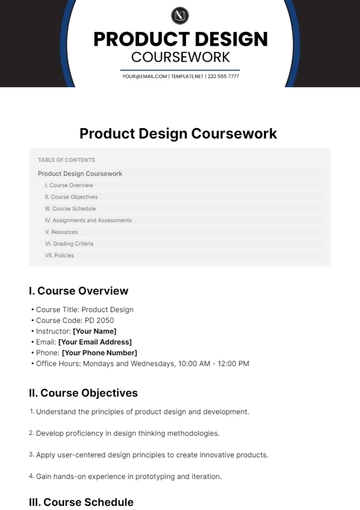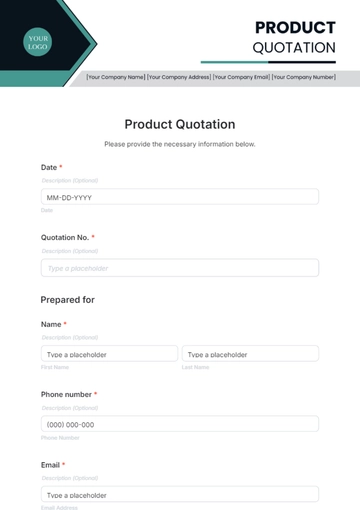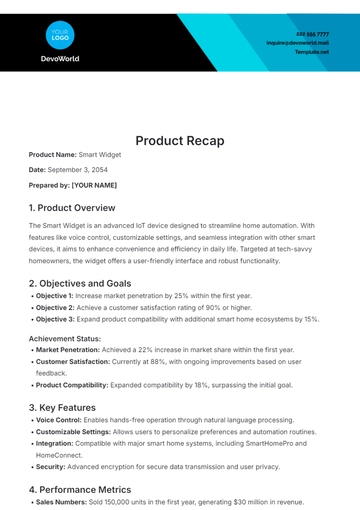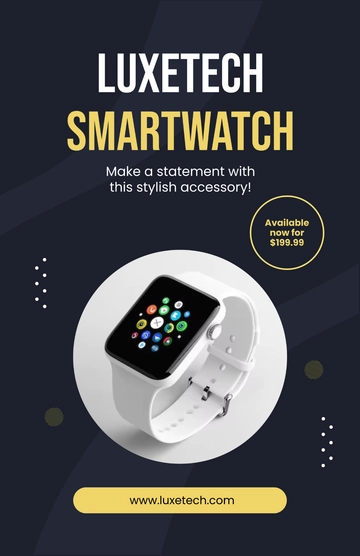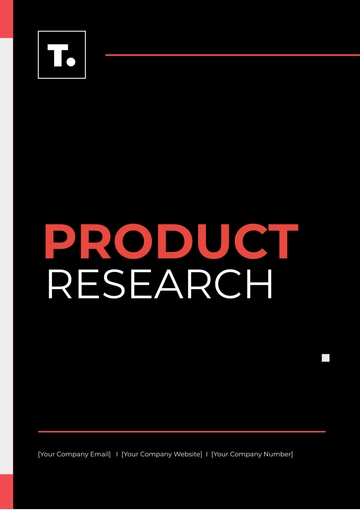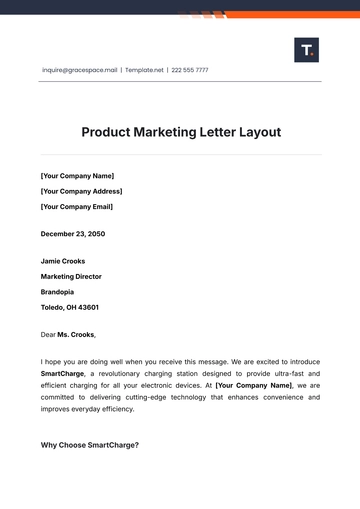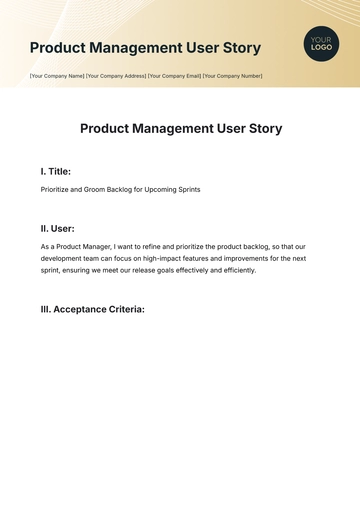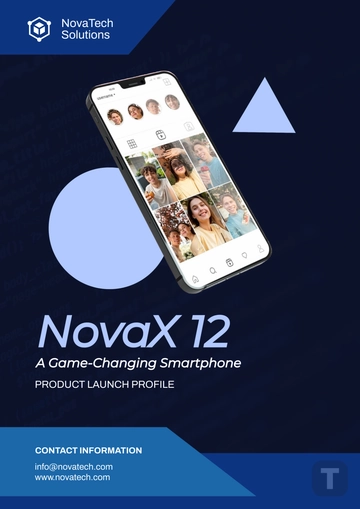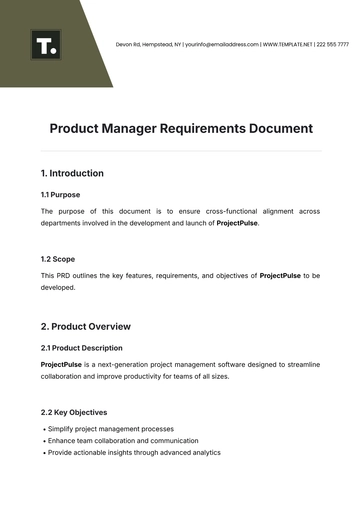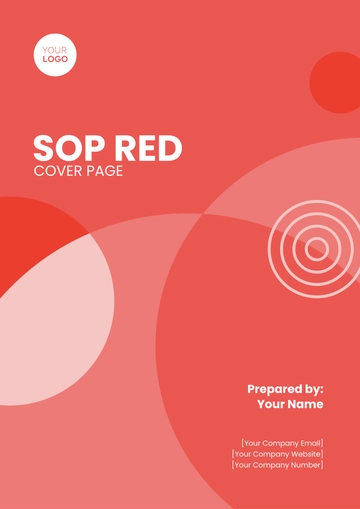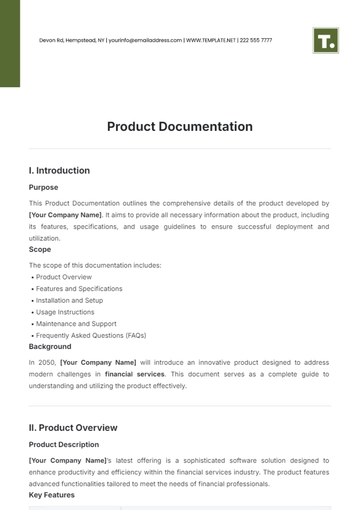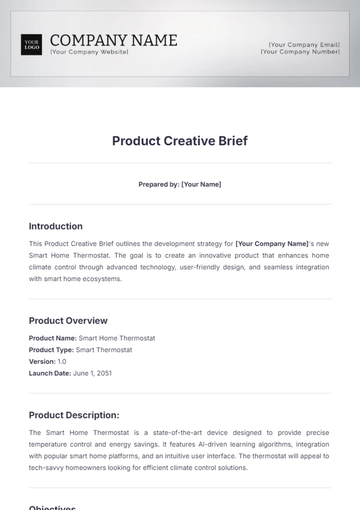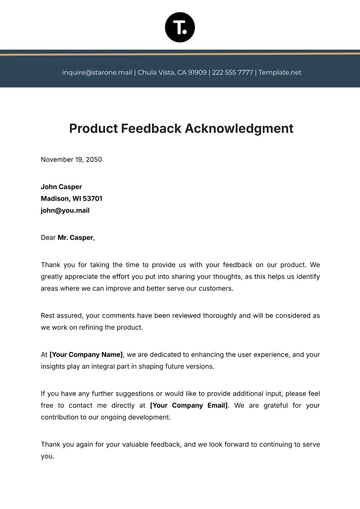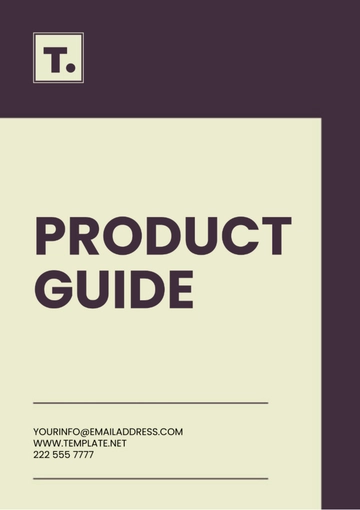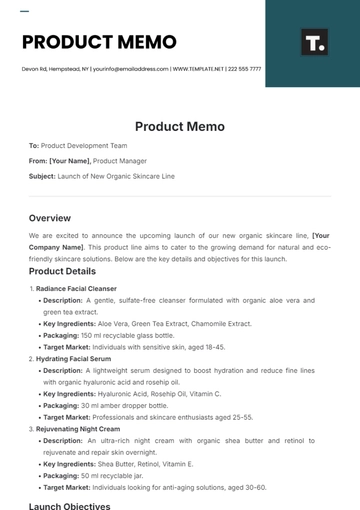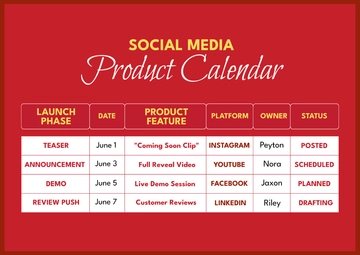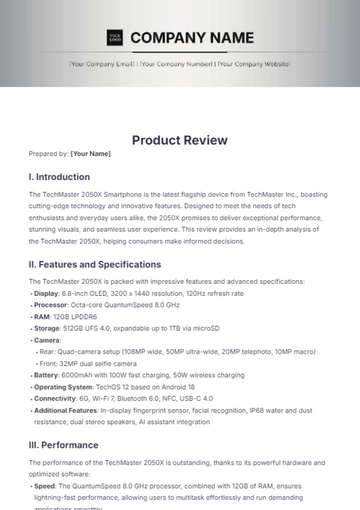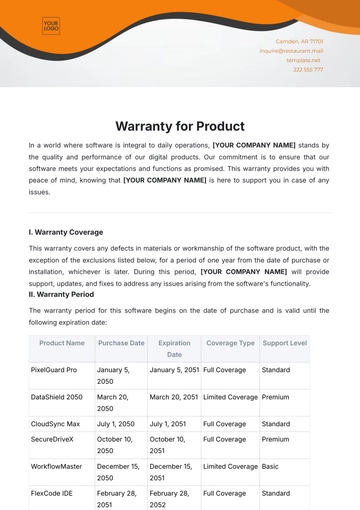Free Product Creative Brief
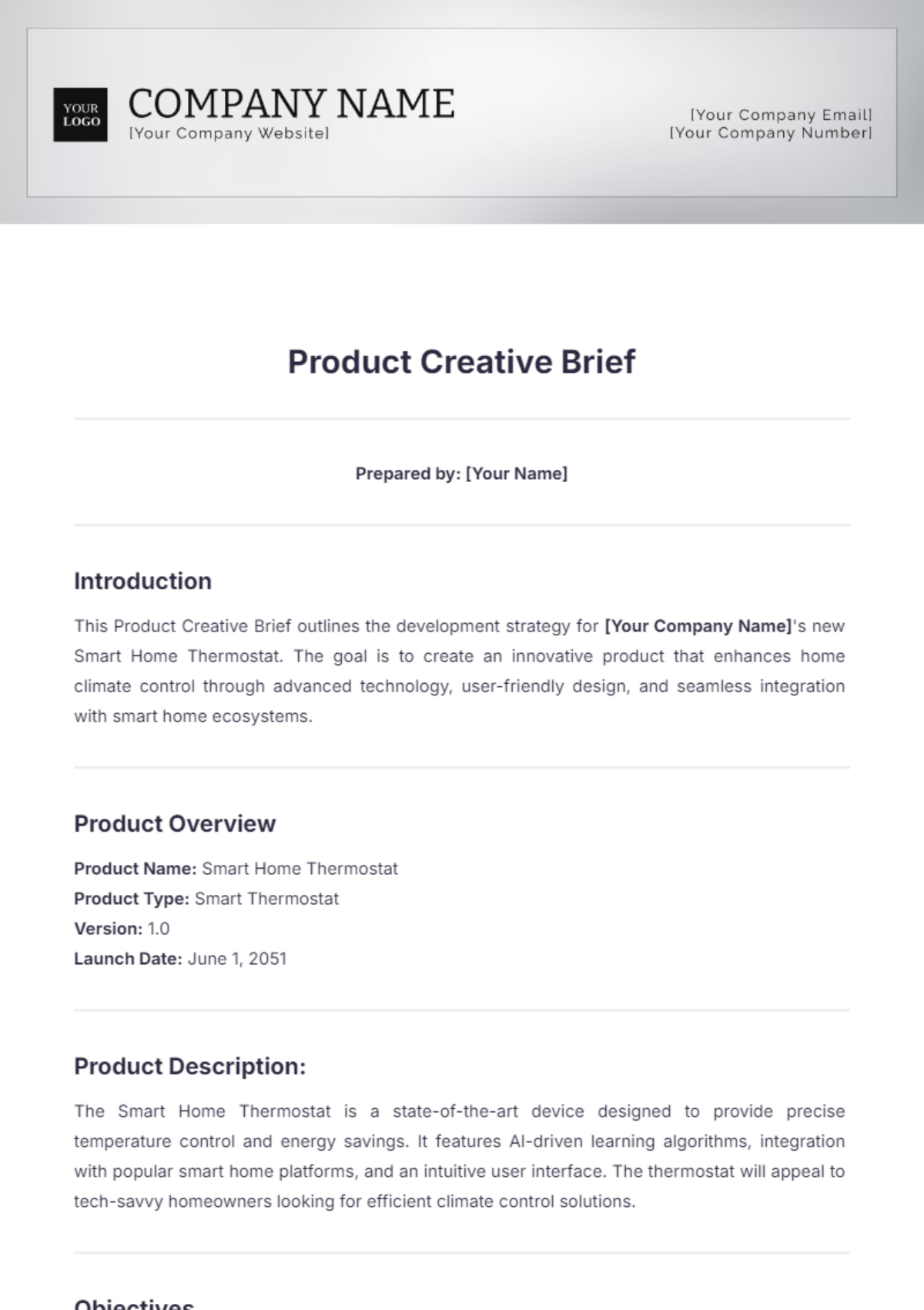
Prepared by: [Your Name]
Introduction
This Product Creative Brief outlines the development strategy for [Your Company Name]'s new Smart Home Thermostat. The goal is to create an innovative product that enhances home climate control through advanced technology, user-friendly design, and seamless integration with smart home ecosystems.
Product Overview
Product Name: Smart Home Thermostat
Product Type: Smart Thermostat
Version: 1.0
Launch Date: June 1, 2051
Product Description:
The Smart Home Thermostat is a state-of-the-art device designed to provide precise temperature control and energy savings. It features AI-driven learning algorithms, integration with popular smart home platforms, and an intuitive user interface. The thermostat will appeal to tech-savvy homeowners looking for efficient climate control solutions.
Objectives
Primary Objective: Develop a highly functional, user-friendly smart thermostat that integrates seamlessly with existing smart home systems.
Secondary Objectives:
Achieve a 20% reduction in energy consumption compared to traditional thermostats.
Ensure compatibility with major smart home ecosystems such as Google Home, Amazon Alexa, and Apple HomeKit.
Launch with a user-friendly mobile app for remote management.
Target Audience
Primary Audience:
Homeowners aged 25-45
Tech enthusiasts and early adopters
Environmentally conscious individuals looking to reduce energy consumption
Secondary Audience:
Property managers
Real estate professionals
Builders and contractors
Key Features
AI Learning Algorithm: Adapts to user preferences and schedules for optimal temperature control.
Smart Home Integration: Compatible with Google Home, Amazon Alexa, and Apple HomeKit.
Remote Control: Manage settings via a dedicated mobile app available for iOS and Android.
Energy Reports: Provides insights on energy usage and tips for savings.
Voice Control: Allows users to adjust settings using voice commands.
Touchscreen Interface: High-resolution, user-friendly display for easy interaction.
Requirements
Hardware Specifications:
Display: 5-inch LCD touchscreen
Connectivity: Wi-Fi 802.11 b/g/n, Bluetooth 5.0
Sensors: Temperature, humidity, motion
Power Supply: AC 24V
Software Specifications:
Operating System: Custom OS based on Linux
App Compatibility: iOS 14 and above, Android 10 and above
Security: End-to-end encryption, two-factor authentication
Design Specifications
Dimensions: 4.5 x 4.5 x 1.5 inches
Color Options: Black, White, Silver
Material: Durable plastic with a matte finish
Mounting: Wall mount with standard HVAC system compatibility
Competitive Analysis
Competitor | Product | Key Features | Price Range |
|---|---|---|---|
Nest | Nest Learning Thermostat | AI learning, smart home integration | $249 |
Ecobee | Ecobee SmartThermostat | Voice control, remote sensors | $229 |
Honeywell | Honeywell Home | Simple controls, energy-saving settings | $199 |
Marketing Strategy
Positioning:
Market the Smart Home Thermostat as the premium choice for tech-savvy homeowners who want advanced features and energy savings in one device.
Promotion Channels:
Digital Advertising: Google Ads, Facebook Ads, Instagram
Influencer Partnerships: Tech and home improvement influencer collaborations
Retail Presence: Partner with major electronics and home goods stores
Email Marketing: Targeted campaigns to existing customer base
Sales Strategy:
Online Store: Direct sales through [Your Company Website]
Retail Partnerships: Distribution through major retail chains
Promotional Offers: Intro discounts and smart home bundles
Timeline
Phase | Start Date | End Date |
|---|---|---|
Product Design | August 1, 2050 | October 1, 2050 |
Prototype Development | October 2, 2050 | December 1, 2050 |
Testing and Quality Assurance | December 2, 2050 | February 1, 2051 |
Marketing Campaign Launch | March 1, 2051 | June 1, 2051 |
Product Launch | June 1, 2051 | - |
Budget
Development Costs: $500,000
Marketing Costs: $200,000
Manufacturing Costs: $300,000
Miscellaneous Costs: $50,000
Total Budget: $1,050,000
Success Metrics
Sales Targets: Achieve 50,000 units sold within the first year.
Customer Satisfaction: Obtain an average rating of 4.5 stars or higher.
Energy Savings: Validate 20% energy cut through feedback and data analysis.
Contact Information
Company Name: [Your Company Name]
Email: [Your Company Email]
Address: [Your Company Address]
Phone Number: [Your Company Number]
Website: [Your Company Website]
Social Media: [Your Company Social Media]
For further details or inquiries, please contact: [Your Email]
- 100% Customizable, free editor
- Access 1 Million+ Templates, photo’s & graphics
- Download or share as a template
- Click and replace photos, graphics, text, backgrounds
- Resize, crop, AI write & more
- Access advanced editor
Enhance your product development with the Product Creative Brief Template from Template.net. This customizable, downloadable, and printable template ensures a structured approach to crafting product briefs. Editable in our AI Editor Tool, it provides a clear framework for organizing objectives, audience insights, key messages, and product details. Optimize your process with this essential template.

